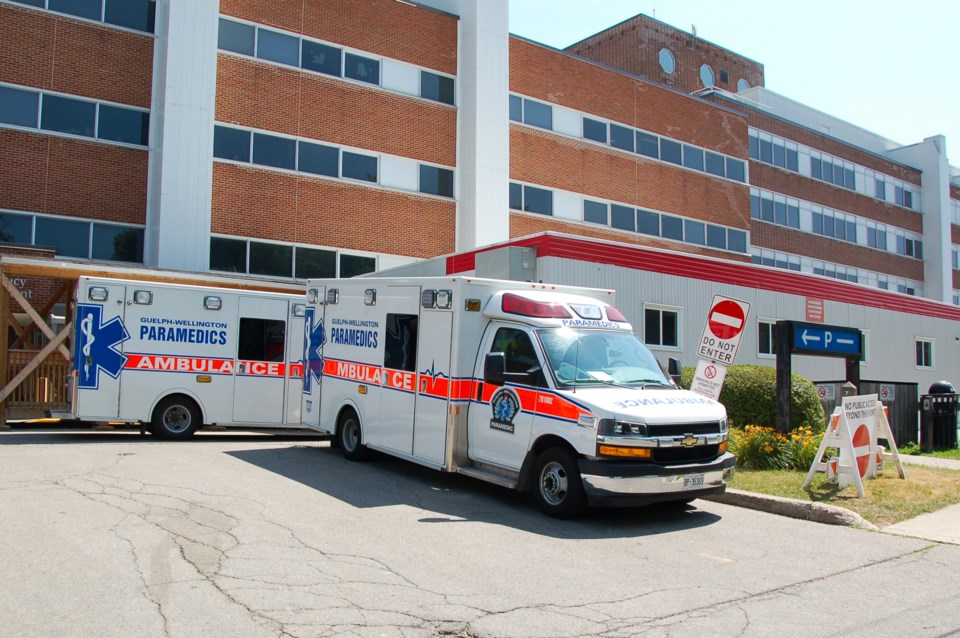In July, there were 11 code red situations the Guelph-Wellington Paramedic Service dealt with, meaning no ambulances are able to respond to calls.
A code can last anywhere from a couple of minutes to over an hour. There were eight code red situations in June.
This is not typical. Traditionally, GWPS would see around six code red situations in an entire year, said Leanne Swantko, deputy chief of GWPS.
The first two weeks of August the GWPS saw a drop in call volumes, which helped ease the pressure but staff were bracing for a change, said Swantko.
The most recent code red was on Saturday and lasted 20 minutes.
“At that time, we had absolutely no Guelph-Wellington ambulances available to respond in our community of Guelph and the County of Wellington,” said Swantko.
“I do know for sure, during that time, I had a code three waiting, which is a call for an urgent but not an emergent matter.” The call had to wait because no ambulances could respond to it, she said.
She said other municipalities, including Guelph try to conserve their resources so they wait 30 minutes before responding to an urgent call outside of the municipality.
During a code red if there is an emergent matter the closest ambulance in the province will be dispatched, such as an ambulance from Waterloo or Hamilton, said Swantko.
She gave an example: if there was an accident on the highway between Guelph and Halton Hills, the call would go to Mississauga to respond and other surrounding municipalities would also respond, since major accidents need more ambulances at the scene.
“It's just a major crisis that is just becoming more and more magnified, frankly, because of what's happening within the hospitals,” she said.
The paramedics end up, in a sense, helping the hospital staffing issue by staying with patients and keeping them stable until hospital staff can attend to them, said Swantko.
“By holding the paramedic crew at the facility, we have nobody available to respond to our core business, as you know, pre-hospital care,” she said.
“And our logistics are built for 20 minute response a two team member to manage, just frankly, the unknown from mass trauma to critical illness.”
Swantko explained the issue is compounded when surrounding municipalities close their emergency departments due to a lack of staff and patients are redirected to hospitals like the Guelph General.
To help with mitigating code red situations, the GWPS applied to the Ministry of Health for an offload nurse who would be responsible for patients the paramedics bring to the hospital, while they wait for further care. The GWPS hasn't received an update from the ministry about getting an offload nurse.
She said if people are experiencing an emergency, they should call 911 for an ambulance.
“But if you can go through another alternative to get your healthcare needs, it is not an emergency, please, contact your primary care physician. If you can go to an urgent care, if you can use Telehealth, there's other avenues because we are really, really, really busy,” said Swantko.
